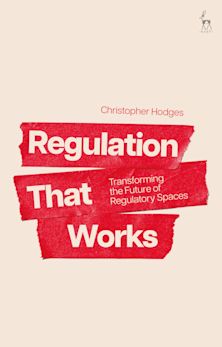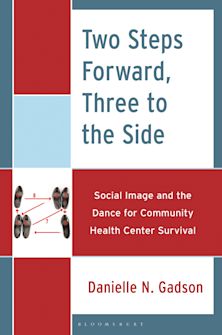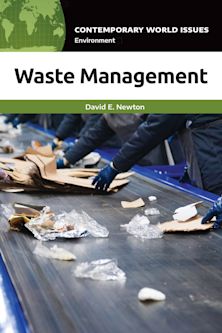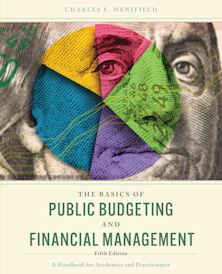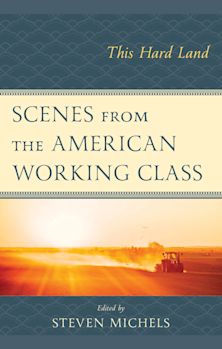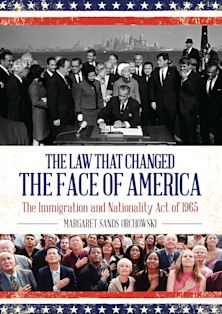- Home
- ACADEMIC
- Politics & International Relations
- Public Management, Administration and Policy
- Immigration and Citizenship in the Twenty-First Century
Immigration and Citizenship in the Twenty-First Century
Noah M. J. Pickus (Anthology Editor) , Kwame Anthony Appiah (Contributor) , Linda S. Bosniak (Contributor) , Joseph H. Carens (Contributor) , David A. Hollinger (Contributor) , Michael Jones-Correa (Contributor) , Charles R. Kesler (Contributor) , John J. Miller (Contributor) , Hiroshi Motomura (Contributor) , Juan F. Perea (Contributor) , Noah M. J. Pickus (Contributor) , Peter H. Schuck (Contributor) , Daniel J. Tichenor (Contributor) , Rogers M. Smith (Foreword)
- Textbook
Immigration and Citizenship in the Twenty-First Century
Noah M. J. Pickus (Anthology Editor) , Kwame Anthony Appiah (Contributor) , Linda S. Bosniak (Contributor) , Joseph H. Carens (Contributor) , David A. Hollinger (Contributor) , Michael Jones-Correa (Contributor) , Charles R. Kesler (Contributor) , John J. Miller (Contributor) , Hiroshi Motomura (Contributor) , Juan F. Perea (Contributor) , Noah M. J. Pickus (Contributor) , Peter H. Schuck (Contributor) , Daniel J. Tichenor (Contributor) , Rogers M. Smith (Foreword)
- Textbook
Inspection copy added to basket
This title is available for inspection copy requests.
Please note our inspection copies are only available in ebook format, and are fulfilled by VitalSource™. If an ebook isn’t available, please visit our inspection copy page for more information.
Buy from Bloomsbury eTextBooks
You are now leaving the Bloomsbury Publishing website. Your eBook purchase will be with our partner https://www.vitalsource.com.
Your credit card statement will show this purchase originating from VitalSource Technologies. They will also provide any technical assistance you might require.
You must sign in to add this item to your wishlist. Please sign in or create an account
Description
In this important book, a distinguished group of historians, political scientists, and legal experts explore three related issues: the Immigration and Naturalization Service's historic review of its citizenship evaluation, recent proposals to alter the oath of allegiance and the laws governing dual citizenship, and the changing rights and responsibilities of citizens and resident aliens in the United States. How Americans address these issues, the contributors argue, will shape broader debates about multiculturalism, civic virtue and national identity. The response will also determine how many immigrants become citizens and under what conditions, what these new citizens learn_and teach_about the meaning of American citizenship, and whether Americans regard newcomers as intruders or as fellow citizens with whom they share a common fate.
Table of Contents
Chapter 2 Introduction
Part 3 Part I. The Meaning of Americanization
Chapter 4 The Promise of American Citizenship
Chapter 5 Citizenship in Theory and Practice: A Response to Charles Kesler
Chapter 6 "Am I an American or Not?" Reflections on Citizenship, Americanization, and Race
Chapter 7 Reviving Americanization: A Response to Juan Perea
Part 8 Part II. Nationalism and Citizenship
Chapter 9 Nationalism, Cosmopolitanism, and the United States
Chapter 10 A National Solidarity? A Response to David Hollinger
Chapter 11 To Make Natural: Creating Citizens for the Twenty-First Century
Chapter 12 Why Naturalization Should Be Easy: A Response to Noah Pickus
Part 13 Part III. Multiple Memberships?
Chapter 14 Plural Citizenships
Chapter 15 Why Immigrants Want Dual Citizenship (And We Should Too): A Response to Peter Schuck
Chapter 16 Alienage Classification in a Nation of Immigrants: Three Models of "Permanent" Residence
Chapter 17 Membership and American Social Contracts: A Response to Hiroshi Motomura
Chapter 18 Index
Product details
| Published | 20 Aug 1998 |
|---|---|
| Format | Ebook (PDF) |
| Edition | 1st |
| Extent | 272 |
| ISBN | 9798216323358 |
| Imprint | Rowman & Littlefield |
| Publisher | Bloomsbury Publishing |
About the contributors
Reviews
-
There may be no greater or more important gulf in contemporary America than that between the academy and the public over questions of immigration and citizenship. This collection of essays comes closer than any I have seen to exploring these contentious questions with honesty and rigor. As we face anew what it means to be an American, Noah Pickus has performed a vital service.
Peter Skerry, Brookings Institution and Claremont McKenna College
-
This collection of essays has two great merits: First is the sheer importance of its subject: the meaning of American citizenship is obviously at the heart of many current controversies within our policy. Second is the quality of the essays. This is a wonderful introduction to the array of opinions on the issue. It should prove helpful to scholars and citizens alike.
Sanford Levinson, University of Texas at Austin
-
Throughout our existence as a nation, the process of becoming an American citizen has been linked to disputes over what it means to be an American. Combining history, theory, law, and public policy, these essays by a diverse group of first-rate scholars offer a terrific introduction to this subject. Their debates illuminate the basic issues that a 21st century immigration and naturalization policy will have to address.
William A. Galston, Senior Fellow, The Brookings Institution
-
...offers a diversity of well-argued perspectives on the contemporary American debate over citizenship.
Peter Andreas, Harvard University, Political Science Quarterly
-
Although the book contains many useful reflections on the 1997 report of the Commision on Immigration Reform, most of the pieces extend well beyond it to broader considerations of the contemporary meaning of citizenship in the United States. The volume's major contribution is to provide a theoretical background for the general themes of U.S. immigration law and policy. The selections are high quality and the book holds together as a whole. The combination of longer essays and shorter responses would work well in any upper-division or graduate class which treats the topic of immigration at length, and many of the contributions counter the prevailing wisdom, which may spark energetic classroom conversation. For those wishing to enter into the current conversation, this volume is a better starting place than most.
Daniel Levin, Department of Political Science, Boise State University, Journal of Law & Politics
-
One of the most difficult issues we will be dealing with in the next decade is the nature of citizenship in the United States. What do we expect, what do we demand, what do we have the right to expect or demand, of the one million new citizens a year we are now adding to the American polity? What can national loyalty mean in a world of changing nation-states, ever more closely bound together? The papers in this volume form an excellent introduction to these complex issues: They underline the implications of our current law of citizenship, and the alternatives that are being proposed.
Nathan Glazer, Harvard University












